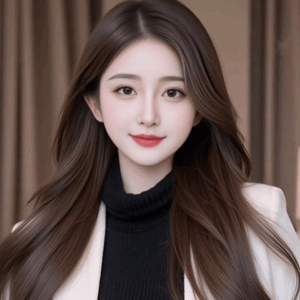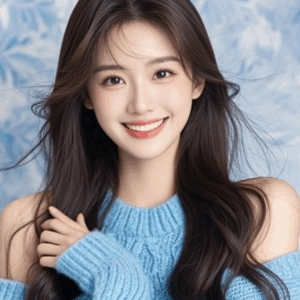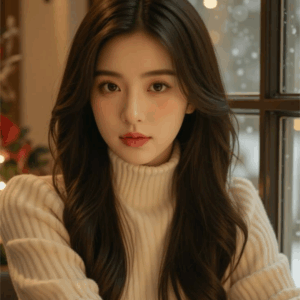Exploring the question of whether AI can create the most beautiful women in the world, this introduction sets the stage for a fascinating discussion that delves into the realms of beauty and artificial intelligence.
The following paragraphs will provide insights into how AI interprets beauty and its implications on societal standards.
Can AI Generate Beauty?
Beauty is a concept that has been subject to interpretation throughout history, influenced by cultural norms, personal preferences, and societal standards. It encompasses a combination of aesthetic qualities that are pleasing to the eye and evoke positive emotions in the observer.
AI, with its advanced algorithms and machine learning capabilities, has been utilized to recognize patterns and create aesthetically pleasing designs in various fields.
Factors Influencing Perception of Beauty
- Symmetry: Humans are naturally drawn to symmetrical faces and objects, which are often perceived as more attractive.
- Proportion: The golden ratio and other mathematical principles play a role in defining beauty standards across different cultures.
- Color Harmony: The use of complementary colors and balanced color schemes can enhance the visual appeal of art and design.
- Emotional Connection: Beauty is not merely about aesthetics but also about evoking emotions and creating a sense of connection with the observer.
AI in Creating Beauty
- Art: AI algorithms have been used to generate artworks that mimic the style of famous painters or create unique pieces that challenge traditional notions of beauty.
- Design: From architecture to product design, AI tools can assist in creating aesthetically pleasing and functional solutions by analyzing vast amounts of data and user preferences.
- Fashion: Virtual fashion designers powered by AI can generate clothing designs, patterns, and color combinations that appeal to consumers' tastes and trends.
Ethical Considerations

The rise of AI-generated beauty standards brings about a myriad of ethical concerns that need to be addressed. As technology advances, it becomes crucial to examine the implications of AI-created beauty on individuals and society as a whole.
Impact on Self-Esteem and Societal Norms
AI-generated beauty can have a profound impact on self-esteem and societal norms. By promoting unrealistic beauty standards that are unattainable for the majority of people, AI may contribute to feelings of inadequacy and low self-worth among individuals. This can lead to a harmful cycle of comparison and self-criticism, ultimately affecting mental health and well-being.
Perpetuating Unrealistic Beauty Standards
One of the major concerns with AI-generated beauty is the perpetuation of unrealistic beauty standards. By consistently showcasing digitally-enhanced or AI-generated images of "perfect" individuals, there is a risk of distorting perceptions of beauty and promoting an unattainable ideal. This could lead to increased pressure on individuals to conform to these standards, potentially resulting in unhealthy behaviors and body image issues.
Mitigating Negative Effects
It is essential to consider ways to mitigate the negative effects of AI-generated beauty on individuals and society. One approach could involve promoting diversity and inclusivity in beauty standards, showcasing a wide range of representations that reflect the diversity of the population.
Additionally, educating individuals about the use of AI in beauty standards and encouraging critical thinking when consuming media can help foster a more realistic and positive perception of beauty.
Cultural Perspectives on Beauty
Cultural definitions and standards of beauty vary significantly worldwide, shaped by historical, social, and geographical factors. These diverse perspectives influence how beauty is perceived and valued in different societies.
Global Beauty Norms
- In Western cultures, beauty ideals often revolve around symmetry, youthfulness, and specific body proportions.
- In Asian cultures, features like porcelain skin, delicate facial features, and long, dark hair are traditionally considered beautiful.
- In African cultures, beauty is often associated with traits like dark skin, full lips, and natural hair textures.
AI’s Impact on Beauty Norms
- AI technology has the potential to challenge existing beauty norms by showcasing a more diverse range of beauty ideals
.
- Through AI-generated images and models, cultural diversity and inclusivity in beauty standards can be promoted and celebrated.
Implications on Cultural Diversity
- AI-generated beauty can help break stereotypes and misconceptions by highlighting the beauty of individuals from various cultural backgrounds.
- By recognizing and adapting to different beauty ideals, AI can contribute to a more inclusive representation of beauty in media and advertising.
Adaptation of AI to Diverse Beauty Ideals
- AI algorithms can be trained to recognize and appreciate diverse facial features, skin tones, and body types to create a more inclusive concept of beauty.
- Examples like virtual makeup apps that cater to a wide range of skin tones and features demonstrate how AI can adapt to and represent diverse beauty ideals.
Limitations of AI in Creating Beauty

AI technology has made significant advancements in various fields, including image recognition and generation. However, when it comes to creating beauty, AI faces several challenges that limit its ability to accurately capture and replicate human beauty. One of the main obstacles is the subjective nature of beauty itself, which is deeply rooted in cultural, social, and individual preferences.
The Role of Creativity and Emotional Intelligence in Defining Beauty
Creativity and emotional intelligence play crucial roles in defining beauty. Beauty is not just about physical appearance but also about emotions, expressions, and individual experiences. AI, lacking emotional intelligence and creativity, struggles to comprehend the complex and nuanced aspects of beauty that go beyond mere aesthetics.
- AI may be able to analyze facial features and symmetry to some extent, but it cannot truly capture the unique qualities that make someone beautiful in the eyes of others.
- Beauty is often tied to personal experiences, memories, and cultural backgrounds, making it challenging for AI to create universally appealing images of beauty.
The Subjective Nature of Beauty and AI’s Struggle to Comprehend It
Beauty is highly subjective and varies greatly from person to person. What one individual finds beautiful, another may not. This subjectivity makes it difficult for AI to generate universally beautiful images that can please everyone. AI algorithms lack the ability to understand the emotional and personal connections that individuals have with beauty.
AI may be able to generate aesthetically pleasing images based on predefined criteria, but it cannot capture the essence of beauty that lies in the eye of the beholder.
Examples of AI Falling Short in Capturing the Essence of Beauty
While AI technology has shown impressive capabilities in image generation, there are instances where it falls short in capturing the essence of beauty. For example, AI-generated faces may lack the warmth, charisma, and unique features that make a person truly beautiful.
The images produced by AI may appear flawless and symmetrical but often lack the depth and emotional resonance that define true beauty.
- AI-generated beauty standards may perpetuate unrealistic ideals and homogenize diversity, undermining the richness and complexity of human beauty.
- AI struggles to understand the cultural nuances and historical significance attached to different notions of beauty, leading to oversimplified and narrow representations.
Outcome Summary

In conclusion, the discussion on AI's ability to generate beauty raises intriguing questions about the intersection of technology and aesthetics, leaving us pondering the future of beauty in the digital age.
General Inquiries
Can AI truly replicate human beauty?
While AI can create aesthetically pleasing outputs, the subjective nature of beauty makes it challenging for AI to capture the essence of human beauty completely.
How does AI impact societal beauty standards?
AI-generated beauty can perpetuate unrealistic standards, potentially affecting self-esteem and cultural diversity.
 The rise of AI-generated beauty standards brings about a myriad of ethical concerns that need to be addressed. As technology advances, it becomes crucial to examine the implications of AI-created beauty on individuals and society as a whole.
The rise of AI-generated beauty standards brings about a myriad of ethical concerns that need to be addressed. As technology advances, it becomes crucial to examine the implications of AI-created beauty on individuals and society as a whole.
 AI technology has made significant advancements in various fields, including image recognition and generation. However, when it comes to creating beauty, AI faces several challenges that limit its ability to accurately capture and replicate human beauty. One of the main obstacles is the subjective nature of beauty itself, which is deeply rooted in cultural, social, and individual preferences.
AI technology has made significant advancements in various fields, including image recognition and generation. However, when it comes to creating beauty, AI faces several challenges that limit its ability to accurately capture and replicate human beauty. One of the main obstacles is the subjective nature of beauty itself, which is deeply rooted in cultural, social, and individual preferences.
 In conclusion, the discussion on AI's ability to generate beauty raises intriguing questions about the intersection of technology and aesthetics, leaving us pondering the future of beauty in the digital age.
In conclusion, the discussion on AI's ability to generate beauty raises intriguing questions about the intersection of technology and aesthetics, leaving us pondering the future of beauty in the digital age.










